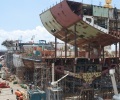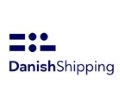ABS Acknowledges Chinese Shipbuilder for Having World’s Largest Ultra-large LNG Carrier Technology

China has received recognition from the American Bureau of Shipping (ABS) and others for its world-leading technological capabilities in the field of ultra-large liquefied natural gas (LNG) carriers, noting it as the largest in the world.
According to industry sources and foreign reports on Sept. 9, China’s Hudong Zhonghua Shipyard recently received approval in principle (AIP) for a 271,000 cubic meter LNG carrier from classification societies such as the ABS, Det Norske Veritas (DNV), and Lloyd’s Register (LR). This marks the world’s largest LNG carrier, surpassing the current largest, which has a capacity of 266,000 cubic meters, by 5,000 cubic meters. This increase represents more than a 50 percent capacity expansion when compared to the standard vessel size of 174,000 cubic meters.
AIP is primarily aimed at analyzing and assessing aspects such as technical elements that do not have a proven track record in order to establish reliability and validity in the design proposal.
LNG carriers are generally classified as “ultra-large” if their transportation capacity exceeds 200,000 cubic meters. In the early 2000s, Qatar initiated significant LNG production projects, kickstarting a wave of orders for these colossal vessels, often referred to as the “Q-Class.” These included the Q-Flex with a capacity of 210,000 cubic meters and the Q-Max with an astounding 266,000 cubic meters. Despite their higher cost compared to standard LNG carriers, these ultra-large vessels offer substantial profitability due to minimal differences in construction timelines.
In the global shipbuilding industry, only three South Korean companies, including HD Korea Shipbuilding & Offshore Engineering, Samsung Heavy Industries, and Hanwha Ocean, have experience in constructing Q-Class LNG carriers. As a result, the field of ultra-large LNG carriers was considered a lucrative market for South Korean shipbuilders. However, it appears that a new competitive landscape is set to emerge with the recent AIP obtained by a Chinese shipbuilder.
China’s technological advancements are gaining even more attention as major LNG-producing countries such as Qatar and the United States are pushing for extensive volume expansion. Furthermore, the ongoing Russia-Ukraine conflict has increased the demand for LNG maritime transportation. Therefore, the industry anticipates a significant increase in demand for ultra-large LNG carriers in the future.
The domestic shipbuilding industry, which ceded its top global position to China, continues to maintain its competitiveness, particularly in high-value-added vessels. However, China’s influence has been expanding even in this market in recent times. In fact, China’s market share in LNG carrier orders, which was around 7.8 percent in 2021, rose to 29.7 percent last year, and the industry expects further growth in the current year.
Consequently, the overall market share gap is widening. According to Clarksons Research, a British shipbuilding and shipping market analysis firm, South Korea’s share of new shipbuilding orders from January to August this year decreased significantly to 27.1 percent compared to the same period last year when it stood at 36.2 percent. Meanwhile, China increased its market share from 46.1 percent to 58.4 percent during the same period. Although South Korea’s shipbuilding orders experienced some sluggishness in the month of August, the trend of market share gap widening between South Korea and China in the 1st and 2nd place has been evident since South Korea lost its position as the top recipient of orders to China in 2019.
Source: Business Korea

 Hellenic Shipping News Worldwide Hellenic Shipping News Worldwide, Online Daily Newspaper on Hellenic and International Shipping
Hellenic Shipping News Worldwide Hellenic Shipping News Worldwide, Online Daily Newspaper on Hellenic and International Shipping























 PG-Software
PG-Software